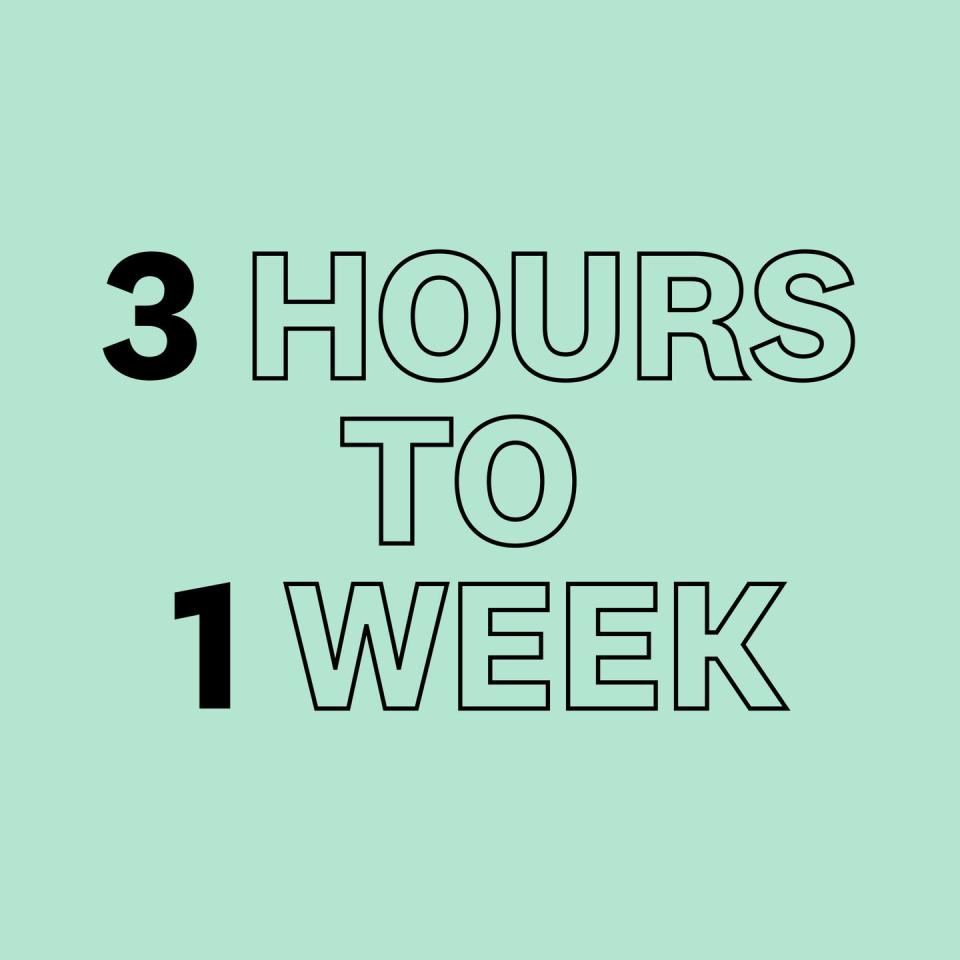24 Hours in Diarrhoea- Here's What's Happening in Your Body When You Get the Runs


Dr Megan Rossi, AKA The Gut Health Doctor, is a gut health expert, boasting a PhD in the subject.
The Australia-native leads research at King’s College London, where she investigates nutrition-based therapies in gastrointestinal health – as well as being a registered dietitian (#overachiever goals) and bestselling author. After her inaugural column, which dug into 24 hours in an IBS flare-up, this time she's giving us the intel on diarrhoea episodes (the glamour!)
Over to Dr Rossi.
[We earn a commission for products purchased through some links in this article.]
Hello and welcome to the second ever Never TMI with Dr Megan Rossi.
First up: know that your good pal the runs comes wearing a couple of different outfits.
Diarrhoea Causes: Acute diarrhoea
This is your classic short term bout. Think: you're on holiday and dove into a pile of fried street food doused in a chilli carnival of hot sauce.
This can also happen if you are, say, lactose intolerant and go nuts on a pint of pralines and cream ice cream. Because you can't break down the milk sugar, it will hang around in your intestine and trigger a chain of reaction that we'll get into, sharpish.
Diarrhoea Causes: Chronic diarrhoea
This is when you deal with episodes that span several months. If this happens, head to your GP, where they can try parasite and bacteria tests, to determine if you have an infection – or perhaps have strain of IBS.
For now, we'll deal with the more common short term guy: acute diarrhoea.
Diarrhoea treatment: Your 24 hour guide

Okay. So you know that you're not supposed to eat those leftover salmon maki rolls from your sushi lunch the other day because raw fish has a limited shelf life and la la la boring. With a furtive glance to make sure that no colleagues are coming, you chain the snack.
Delicious! You're in the clear!
Or are you.
The food goes down your throat and into your stomach. This is the point at which the acid in your gut will normally kill bad bacteria, and you'll never even know that you ingested it. But the really nasty guys – like those lurking in your too-old raw fish treat – resist.

This means that the bad bacteria are now making a splashy entrance into your small intestine.
And they did not come here to play. They grow in number and start dancing – which irritates your gut lining. Being a bright spark, said gut lining tells your immune system to set off an inflammatory response, to get rid of these party hardy interlopers.
It does this by letting your gut wall bring more fluid into the area than is normally allowed, to get it flushed out. (Quick note: because of this, it's often best to not take anti-diarrhoea meds, for a short term issue, as you don't want to trap these bacteria in your body.)

The fluid is gushing around in your large intestine, which is trying, really hard, to re-absorb it all, so that you can produce a solid-ish poo.
But it can't. The fluid is all too much.
This creates a feeling of needing to go to the loo like now – and all of that fluid means, well, diarrhoea.

Yep. While, hopefully, your diarrhoea episode will be wrapped up over the course of a single day, some nasty microbes will stay in gut for longer. For up to a week. While you're suffering, make sure you keep hydrated with an electrolyte solution such as Dioralyte.
This contains a mix of potassium, sodium and energy in glucose, which can help your body to start re-absorbing the extra water.
If this goes on for more than a week? Then it's time to head to the doctor, kids.
How to settle diarrhoea
You are going to need to let your body do what it needs to do, and get that bacteria (or whatever the nasty invader is, it could be a parasite) out.
But avoid making it worse by:
Avoiding any gut-stimulating food and drink. Coffee, alcohol, high fat meals, chilli are all off the menu.
Have six small meals, rather than three big ones. Too much food at once might get drawn into the rapid moving lake that's happening in your gut. Smaller portions give your body time to digest and absorb properly.
Stay away from sugar-free foods like chewing gum. These can contain ingredients like sorbitol and xylitol, which are poorly absorbed by your gut and move down your intestine, fast, attracting more water as they go.
How do you prevent diarrhoea?
If you are travelling abroad to a developing country, be aware that around 50% of Westerners who do so will get traveller's diarrhoea. To prep your system, take a specific strain of probiotic, named Saccharomyces Boulardii.
Buy a brand that has 5 billion CFU (the unit of measurement for bacteria) and take it twice a day, two hours after breakfast and two hours after dinner, for a week before you travel and a week after.
Know that 30% of people get diarrhoea when they take an antibiotic – they often kill good bacteria in your gut, as well as the bad bacteria they're eliminating.
I'd take the same probiotic as for traveller's tummy, during and a week after you've finished it.
Now that you know more about diarrhoea causes, find out what happens in an IBS flare-up.
You Might Also Like


